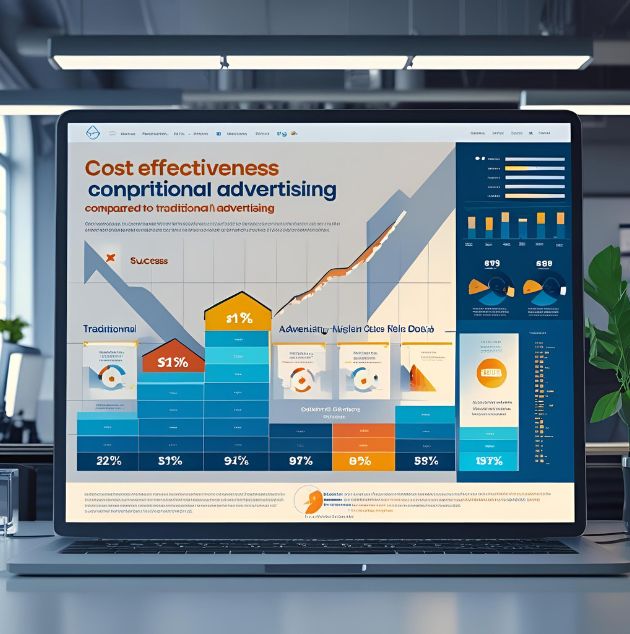Why Digital PR Matters for Business Success

Public relations has undergone a dramatic transformation. Gone are the days when businesses could rely solely on traditional media outlets and print publications to build their reputation. The digital landscape has fundamentally changed how brands communicate with their audiences, creating new opportunities and challenges that demand a fresh approach to public relations.
Digital PR represents the evolution of traditional public relations into the online realm. It encompasses all the strategies, tactics, and tools that businesses use to build relationships with their target audiences through digital channels. From social media engagement and influencer partnerships to online reputation management and content marketing, digital PR has become an indispensable component of modern business strategy.
Understanding the importance of digital PR isn’t just about keeping up with trends—it’s about survival in a marketplace where consumer behavior, media consumption, and brand perception are shaped primarily by digital interactions. Businesses that fail to embrace digital PR risk becoming invisible to their target audiences, losing market share to competitors who understand how to leverage digital channels effectively.
This comprehensive guide explores why digital PR has become so crucial for businesses of all sizes and industries, examining the key benefits, strategies, and best practices that can help organizations thrive in the digital age.
The Digital PR Landscape
Digital PR operates at the intersection of traditional public relations, digital marketing, and social media management. Unlike traditional PR, which focused primarily on securing coverage in newspapers, magazines, and television, digital PR encompasses a much broader range of activities and platforms.
The modern digital PR landscape includes social media platforms like Twitter, LinkedIn, Instagram, and TikTok, where brands can engage directly with their audiences. It involves building relationships with online influencers, bloggers, and digital journalists who have significant reach and influence within specific niches or industries.
Content creation plays a central role in digital PR strategies. Brands must consistently produce valuable, shareable content that resonates with their target audiences and supports their broader business objectives. This content can take many forms, from blog posts and infographics to videos, podcasts, and interactive experiences.
Search engine optimization (SEO) has also become deeply integrated with digital PR efforts. The links, mentions, and engagement generated through digital PR activities directly impact a brand’s search engine rankings, making digital PR an essential component of any comprehensive SEO strategy.
Building Brand Awareness in a Crowded Digital Space
One of the primary benefits of digital PR lies in its ability to cut through the noise and build meaningful brand awareness. With millions of businesses competing for attention online, establishing a distinctive brand presence requires strategic thinking and consistent execution.
Digital PR enables brands to tell their stories across multiple channels simultaneously, creating a cohesive narrative that reaches audiences wherever they spend their time online. This multi-channel approach amplifies brand messages and increases the likelihood that target audiences will encounter and remember the brand.
Social media platforms offer unprecedented opportunities for brands to showcase their personality, values, and expertise. Through regular posting, engagement with followers, and participation in industry conversations, businesses can build recognition and familiarity among their target audiences.
Influencer partnerships represent another powerful avenue for building brand awareness. By collaborating with influencers whose audiences align with their target market, brands can tap into established communities and leverage the trust and credibility that influencers have built with their followers.
Content marketing initiatives, such as thought leadership articles, industry reports, and educational resources, position brands as authorities within their respective fields. This approach not only builds awareness but also establishes credibility and trust, which are essential for long-term business success.
Enhancing Credibility and Trust Through Digital Channels
Trust has become the most valuable currency in digital business relationships. Consumers are increasingly skeptical of traditional advertising and instead rely on peer recommendations, online reviews, and authentic brand interactions to guide their purchasing decisions.
Digital PR provides multiple avenues for building and maintaining credibility. Through consistent, valuable content creation, brands demonstrate their expertise and commitment to serving their audiences’ needs. This ongoing value creation helps establish the brand as a trusted resource rather than just another company trying to make a sale.
Online reputation management is another crucial aspect of digital PR that directly impacts credibility. By monitoring mentions, reviews, and conversations about their brand across digital platforms, businesses can quickly identify and address potential issues before they escalate into larger problems.
Transparency and authenticity have become non-negotiable expectations among digital audiences. Digital PR strategies that emphasize honest communication, acknowledgment of mistakes, and genuine engagement with customer concerns help build the trust that modern consumers demand.
User-generated content campaigns encourage customers to share their experiences with the brand, creating authentic testimonials and social proof that resonate more strongly with potential customers than traditional advertising messages.
Driving Website Traffic and Improving SEO Performance
The importance of digital PR extends beyond brand building to encompass tangible business metrics like website traffic and search engine rankings. Modern search engines consider factors like online mentions, social signals, and link quality when determining how to rank websites in search results.
Strategic digital PR campaigns generate high-quality backlinks from reputable sources, which serve as powerful ranking signals for search engines. When authoritative websites link to a brand’s content or website, it signals to search engines that the brand is trustworthy and relevant, leading to improved rankings for important keywords.
Content marketing initiatives driven by digital PR strategies often target specific keywords and topics that potential customers are searching for online. By creating comprehensive, valuable content around these topics, brands can capture organic search traffic and attract visitors who are actively seeking solutions to their problems.
Social media engagement generated through digital PR activities can drive direct traffic to websites while also creating social signals that search engines factor into their ranking algorithms. The more people engage with and share a brand’s content, the more likely that content is to be discovered by new audiences.
Media coverage secured through digital PR efforts often includes links back to the brand’s website, providing both referral traffic and SEO benefits. Unlike paid advertising, these organic mentions and links continue to provide value long after the initial coverage is published.
Cost-Effectiveness Compared to Traditional Advertising
Digital PR offers exceptional value compared to traditional advertising methods, particularly for small and medium-sized businesses with limited marketing budgets. While traditional advertising requires ongoing investment to maintain visibility, digital PR efforts can create lasting assets that continue to generate value over time.
Content created for digital PR purposes serves multiple functions simultaneously. A well-crafted blog post, for example, can attract search engine traffic, be shared on social media platforms, be repurposed into other content formats, and serve as the foundation for media outreach efforts.
Social media platforms provide free access to vast audiences, allowing brands to build relationships and engage with potential customers without the high costs associated with traditional media placements. While paid social media advertising can enhance reach, organic social media activity remains a cornerstone of effective digital PR.
The measurable nature of digital PR activities enables businesses to track return on investment more accurately than traditional PR methods. Analytics tools provide detailed insights into website traffic, engagement rates, conversion metrics, and other key performance indicators, allowing for continuous optimization and improvement.
Compared to expensive traditional media placements that reach broad, often irrelevant audiences, digital PR can be precisely targeted to reach specific demographics, interests, and behaviors that align with a business’s ideal customer profile.

Real-Time Engagement and Crisis Management
Digital platforms operate around the clock, creating opportunities for real-time engagement with audiences while also presenting challenges in terms of crisis management and reputation protection. The importance of digital PR becomes especially apparent during crisis situations when quick, strategic responses can mean the difference between minor setbacks and major reputation damage.
Social media monitoring tools enable brands to track mentions and conversations in real-time, allowing for immediate responses to customer concerns, questions, or complaints. This responsiveness demonstrates commitment to customer service and can often resolve issues before they escalate.
During crisis situations, digital channels provide direct communication pathways to key stakeholders, including customers, employees, media, and investors. The ability to share accurate information quickly through owned channels helps control narratives and prevent misinformation from spreading.
Real-time engagement opportunities also exist during positive events, industry discussions, and trending topics relevant to the business. Brands that can quickly contribute valuable perspectives to ongoing conversations often see significant increases in visibility and engagement.
The speed of digital communication means that both positive and negative information can spread rapidly. Digital PR strategies must account for this reality by preparing response protocols and monitoring systems that enable quick action when necessary.

Measuring Digital PR Success
The digital nature of modern PR activities provides unprecedented opportunities for measurement and analysis. Unlike traditional PR, where success was often measured through subjective metrics like advertising value equivalence, digital PR offers concrete data points that demonstrate real business impact.
Website analytics reveal how digital PR activities drive traffic, with specific metrics showing which campaigns, content pieces, or initiatives generate the most valuable visitors. Conversion tracking enables businesses to connect PR activities directly to lead generation and sales outcomes.
Social media analytics provide insights into engagement rates, reach, impressions, and audience growth across different platforms. These metrics help identify which types of content and messaging resonate most strongly with target audiences.
Brand monitoring tools track mentions, sentiment, and share of voice across digital platforms, providing quantitative measures of brand awareness and reputation changes over time. These insights enable continuous optimization of digital PR strategies.
SEO metrics, including keyword rankings, organic traffic growth, and backlink acquisition, demonstrate how digital PR activities contribute to search engine visibility and long-term organic growth.
Future-Proofing Your Business Through Digital PR
The digital landscape continues to evolve rapidly, with new platforms, technologies, and consumer behaviors emerging regularly. Businesses that invest in comprehensive digital PR strategies position themselves to adapt and thrive regardless of how the digital environment changes.
Building strong relationships with digital influencers, journalists, and industry thought leaders creates a network of advocates who can support the business across different platforms and initiatives. These relationships become increasingly valuable as markets mature and competition intensifies.
Developing internal capabilities for content creation, social media management, and digital communication ensures that businesses can respond quickly to new opportunities and challenges without relying entirely on external resources.
The data and insights generated through digital PR activities provide valuable intelligence about customer preferences, market trends, and competitive dynamics. This information becomes increasingly important for strategic decision-making as businesses grow and evolve.

Making Digital PR a Strategic Priority
The importance of digital PR in modern business cannot be overstated. As digital channels continue to dominate how consumers discover, evaluate, and engage with brands, businesses must develop comprehensive strategies that leverage these opportunities effectively.
Success in digital PR requires commitment, consistency, and strategic thinking. It’s not enough to simply maintain social media accounts or occasionally publish blog posts. Effective digital PR demands integrated approaches that align with broader business objectives and target audience needs.
Organizations that recognize the importance of digital PR and invest accordingly will find themselves better positioned to build lasting relationships with their audiences, weather unexpected challenges, and capitalize on emerging opportunities in an increasingly digital marketplace.
The businesses that thrive in the coming decades will be those that understand digital PR not as an optional marketing tactic, but as an essential component of modern business strategy. The time to embrace digital PR is now—before competitors gain insurmountable advantages in the digital space.





